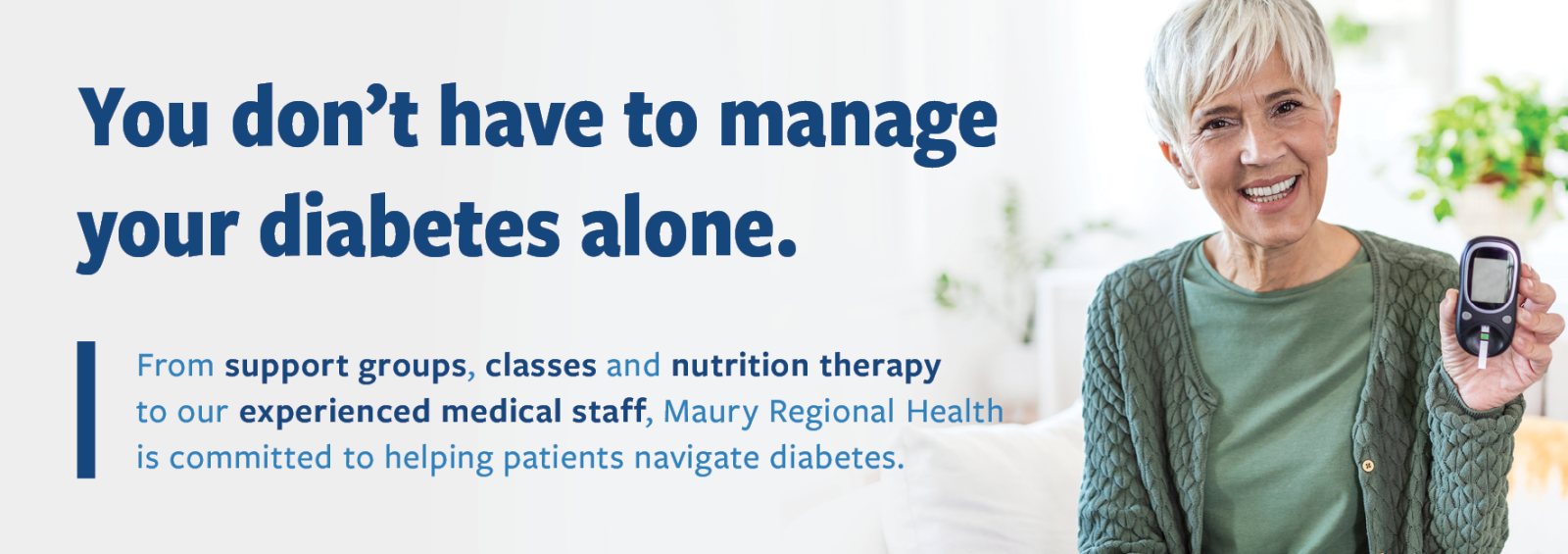
Diabetes
Diabetes is a disease in which the body does not produce or properly use insulin, a hormone that converts glucose into energy. This can cause sugar to build up in the bloodstream and enable diabetes to occur. Diabetes is a serious disease that can lead to heart attack, stroke, nerve damage, kidney failure, amputation and blindness. There are two types of diabetes:
Type 1 Diabetes
Most often affecting children and young adults, this form of diabetes is an autoimmune disorder in which the body does not produce enough insulin.
Type 2 Diabetes
This type of diabetes is a metabolic disorder that results from the body being unable to properly use insulin. This type can affect young people, but most often occurs later in life.
DIABETES VS HIGH BLOOD SUGAR
There are often misconceptions about what is considered diabetes, ranging from what your blood sugar level is to the medication (pills versus insulin) you take. Below are the facts about what your blood sugar level means. The following readings are based on eight hours of pre-test fasting to ensure the most accurate reading:
Normal – Blood sugar less than 100
Pre-diabetes – Blood sugar of 100-125
Diabetes – Blood sugar is 126 or higher
With pre-diabetes, individuals can sometimes make dietary changes, start an exercise program, and/or lose weight to enable glucose levels to go back to a normal range. Often pre-diabetes can be a precursor to type 2 diabetes.
If you have been diagnosed with diabetes, it is important to note that every blood sugar reading you take should not be a fasting test. Checking your glucose 2 hours after a meal can provide insight on how different foods effect your blood sugars. It is also a good idea to check your blood sugar prior to exercise to know if it is safe to begin your workout. Talk with your healthcare provider for safe blood sugar parameters for exercising.
Additional Facts about Diabetes
- Diabetes is the leading cause of blindness among adults.
- 2 out of 3 people with diabetes die from heart disease or stroke.
- Diabetes is the leading cause of kidney failure.
- The rate of amputation for people with diabetes is 10 times higher than those without diabetes.
- About 60-70% of people with diabetes have mild to severe forms of nerve damage.
- Diabetes can cause pain in the hands and feet, sexual dysfunction and other nerve problems.
The earlier diabetes is diagnosed, the better the chance of lowering the risk of serious complications. Speak to your physician about managing diabetes and blood sugar levels. To help manage your condition, your primary care physician may refer you to an endocrinologist - a specialist in the study of hormones who treats diabetes. Find an endocrinologist on the medical staff here.
More information is available at diabetes.org or by calling 1.800.DIABETES.
DIABETES Support GROUPs
Maury Regional offers a Diabetes Support Group that meets monthly to discuss the care and management of diabetes. The group is open to those with diabetes and their family members. For more information about upcoming events, visit the Classes & Events section or contact the certified diabetes educator at 931.540.4324.
Maury Regional Health also offers a free Pediatric Diabetes Support Group. Beginning in September 2022, the group will meet on the third Tuesday of each month at 5:30 p.m. at the Maury Regional Annex (1223 Trotwood Avenue in Columbia). The group is intended to provide encouragement and education for children with type 1 or type 2 diabetes as well as their support systems. For a list of upcoming meetings, visit our calendar of events. For more information, call 931.540.4324.
DIABETES self-management class
Keeping your blood sugar within safe limits is very important to your overall health. Maury Regional Health offers classes to help individuals learn to manage their glucose levels and prevent complications from high blood sugar. Recognized by the American Diabetes Association, this comprehensive eight-hour course is taught by a certified diabetes educator and a registered dietitian and includes topics such as:
- Medications
- Diet and meal planning
- Exercise
Classes are offered on a recurring basis at the following locations:
- Maury Regional Medical Center in Columbia
- Lewis Health Center in Hohenwald
- Marshall Medical Center in Lewisburg
- Wayne Medical Center in Waynesboro
A doctor's order is required to attend this class. Most insurance companies will cover the cost of the class. Financial assistance is available for those who qualify. If financial concerns exist, please contact the Diabetes Services Department for assistance at 931.540.4324.
Nutrition Therapy for Diabetes
Diet is an important factor in controlling diabetes. Maury Regional Health is pleased to offer medical nutrition therapy for patients whose doctor has recommended dietary modifications as part of managing diabetes. This personalized counseling assists patients in developing an individualized meal plan to maintain long-term results. In addition to diabetes, one-on-one consultations with a registered dietitian/nutritionist can benefit individuals with conditions such as:
- Chronic kidney disease
- Heart disease
- Obesity
- Inability to gain weight
A doctor's order is required for this program. Patients are encouraged to check with their insurance provider about coverage for this service. For more information, ask your doctor or contact the Diabetes Services Department at 931.540.4324. To schedule a nutrition therapy consult, call 931.380.4044.